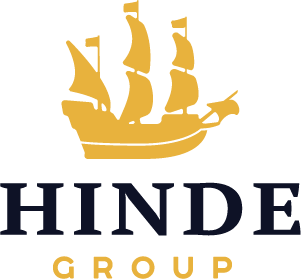Our investments fall into two categories, Compounders and Special Situations.
Most of our investments are in the publicly-traded equities of great businesses that are out-of-favor, misunderstood or underappreciated. We call these investments Compounders. Our investment time horizon for Compounders is indefinite, and we typically end up holding each Compounder for at least several years.
We also selectively invest in Special Situations. Most businesses fall short of our criteria for a great business. A security issued by a less-than-great business can still represent a compelling investment opportunity if it meets two criteria. First, it needs to trade at a meaningful discount to a conservative appraisal of its intrinsic value. Second, there needs to be at least one identifiable event on the horizon that should serve as a catalyst for closing the gap between the market price of the security and its intrinsic value. Special Situations are securities issued by less-than-great businesses that meet these two criteria. Circumstances that could create Special Situation investment opportunities include spin-offs, financial restructurings, mergers & acquisitions, rights offerings and litigation, among others. Our investment time horizon for Special Situations is two years at most.
We source our investments through a structured, repeatable process centered on extensive primary research and analysis.
Key components of our due diligence process include meetings and discussions with company management; consultations with former executives, customers, competitors, suppliers and technical experts; surveys, collection and analysis of alternative data; site visits, and product tests, among other research methods. Our initial due diligence process on a potential investment typically extends for several weeks and may continue for several months.
Our portfolio is concentrated in a limited number of investments that we deem exceptional.
The optimal level of concentration for any portfolio is determined by the point at which the marginal benefits of diversification are equal to the associated marginal costs. Diversification offers real benefits, but the marginal benefits of diversification diminish fairly rapidly. A concentrated portfolio can capture a significant portion of the total possible benefits from diversification. At the same time, we believe our Compounder and Special Situation investments offer risk-adjusted returns well above those generally available in financial markets. We believe there is a substantial opportunity cost involved in diversifying away from those investments. Balancing these benefits and costs of diversification leads us to hold a concentrated portfolio that is typically composed of around ten investments.
Our primary risk management objective is to limit the probability and severity of return outcomes over a five-year time horizon that are below the corresponding U.S. treasury yield.
We aim to invest in securities that are out-of-favor, misunderstood and underappreciated. By design, the market prices of the securities in our portfolio do not accurately reflect their intrinsic values at most times. Similarly, changes in the market prices of the securities in our portfolio often don’t correspond to changes in the intrinsic values of those securities. The short-term, mark-to-market volatility of our portfolio does not accurately reflect the risk of our portfolio, and we don’t aim to directly manage it. Instead, we aim to limit the probability and severity of return outcomes over a five-year time horizon that are below the corresponding U.S. treasury yield.
We use five levers to try to achieve this goal. First, we primarily invest in great businesses. Second, we incorporate a meaningful margin of safety - a discount relative to a conservative appraisal of intrinsic value - into what we are willing to pay for our investments. Third, we aim to realize a disproportionate share of the benefits of full diversification through thoughtful construction of our concentrated portfolio. Fourth, we hold cash in lieu of investments that meet our stringent criteria. Finally, we selectively hedge the portfolio through short positions and derivatives.
We manage assets for institutional and individual investors through separately managed accounts.
Interactive Brokers, a premier global securities firm with over $9 billion of equity capital, maintains custody of our investor-partners’ accounts. Our minimum investment is currently $250,000.
Please contact us if you would like to learn more about joining Hinde Group as an investor-partner.
To learn more about the performance of our portfolio and our current investments, please visit the Portfolio section of our site. Registration is required, but anyone is welcome to register.


